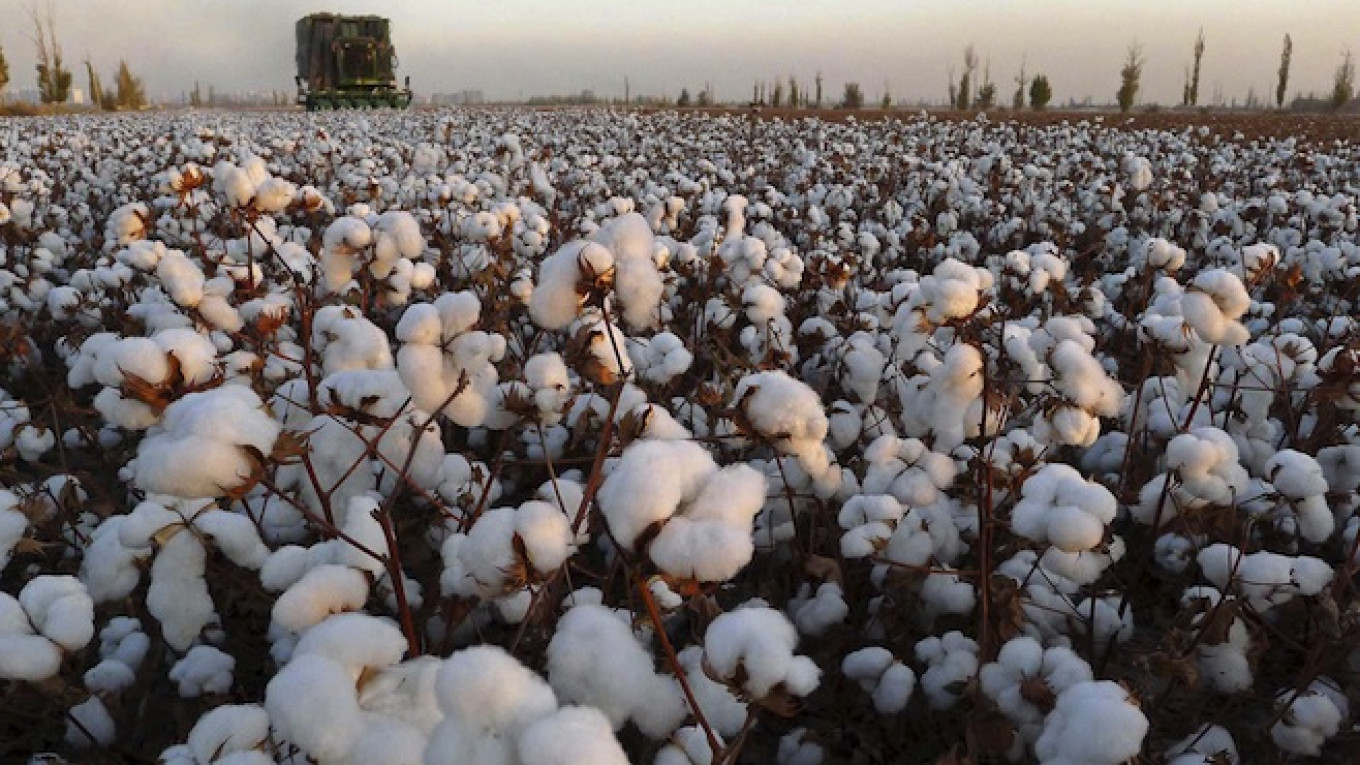Originally published by EurasiaNet.org.
Every year the cotton harvest in Uzbekistan creates a storm of controversy over the use of forced and child labor. But a damning new report by a Germany-based watchdog sheds fresh light on the scale of human rights abuses.
Forced labor during the fall harvest “decimated” public services as teachers and doctors were driven into the cotton fields, while the cotton-production system itself rests on “rampant, widespread and systematic corruption,” said the report by the Uzbek-German Forum for Human Rights (UGF) published on April 13.
The forced-labor system “took an even greater toll” in 2014, it said, “as the government mobilized more public sector workers than in previous years, decimating the provision of essential public services such as health care and education.”
The UGF, which gathered data from human rights monitors and interviews with people who participated in the harvest, found that — as in previous years — Tashkent’s efforts to stamp out child labor had shifted the burden to adults, including students.
Some 4 million adults were pressed into the harvest last fall, the Cotton Campaign (a coalition pushing to end forced labor in the sector, of which the UGF is a member) has estimated.
Schoolchildren and younger students were not mobilized en masse in 2014, the UGF report found. However, “many” 17-year-olds were, “and in some regions local authorities forcibly mobilized younger children … to meet quotas assigned by the same central government authorities that simultaneously decreed children should not pick cotton.”
Tashkent has officially banned the use of child labor in the harvest since 2012, following an international outcry and a boycott of Uzbek cotton by leading retail brands.
In 2013, it invited an International Labor Organization mission to monitor the use of child labor in the harvest, which found that it was not “systematic.” Last year, an ILO official said the situation was “improving” — but the U.S. government found in its annual report on eliminating the worst forms of child labor that the administration of President Islam Karimov had made “no advancement.”
Tashkent denies any state-sponsored systematic use of forced or child labor in the harvest.
A system in which forced laborers can buy their way out of cotton-picking duties and private employers must either send staff to pick cotton or make “mandatory contributions to support the harvest” offers plenty of scope for kickbacks, the UGF found. It “allowed local administration and tax officials, university, college, and school directors, cotton officials and many others to extort and skim money from individuals, institutions and businesses.”
“The scope of the bribery is simply astounding,” UGF director Umida Niyazova said. “At all levels of government, officials take their cut, and Uzbek citizens, particularly public sector workers, are forced to pay or pick cotton through intimidation and fear.”
The UGF urged the international community to press for “unfettered access” to monitor the harvest, and urged “fundamental reforms” to eliminate forced labor.
Yet, as the report pointed out, “the enrichment of officials creates a powerful disincentive to enact real reforms of the cotton sector,” which nets Tashkent some $1 billion in revenues annually.
A Message from The Moscow Times:
Dear readers,
We are facing unprecedented challenges. Russia's Prosecutor General's Office has designated The Moscow Times as an "undesirable" organization, criminalizing our work and putting our staff at risk of prosecution. This follows our earlier unjust labeling as a "foreign agent."
These actions are direct attempts to silence independent journalism in Russia. The authorities claim our work "discredits the decisions of the Russian leadership." We see things differently: we strive to provide accurate, unbiased reporting on Russia.
We, the journalists of The Moscow Times, refuse to be silenced. But to continue our work, we need your help.
Your support, no matter how small, makes a world of difference. If you can, please support us monthly starting from just $2. It's quick to set up, and every contribution makes a significant impact.
By supporting The Moscow Times, you're defending open, independent journalism in the face of repression. Thank you for standing with us.
Remind me later.






